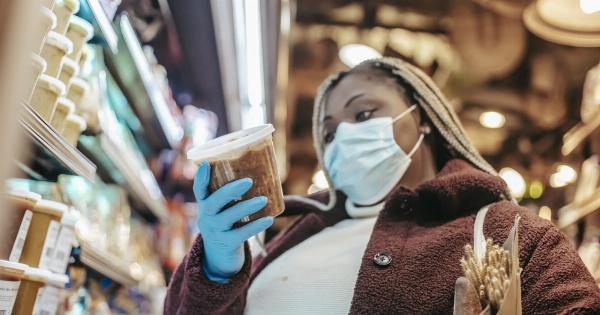Salmonella is a bacterium that is present in contaminated food and water, and it can cause food poisoning. Symptoms can include fever, nausea, vomiting, and diarrhea.
While it is more commonly associated with poultry, Salmonella can be present in a variety of foods, such as eggs, dairy products, and produce.
What is Salmonella?
Salmonella is a type of bacterium that can cause foodborne illness. It affects over a million people in the United States every year. Symptoms of Salmonella poisoning usually appear within 12 to 72 hours of consuming contaminated food or water.
Common symptoms include fever, nausea, vomiting, and diarrhea. In severe cases, Salmonella can even lead to hospitalization or death.
How Does Salmonella Contaminate Food?
Salmonella can contaminate food through a number of ways. One of the primary ways is through contaminated animal products, such as poultry, beef, and eggs.
Salmonella can also be spread by contaminated water and produce that have been grown in contaminated soil or irrigated with contaminated water.
How Can You Prevent Salmonella Contamination?
Cooking Meat and Poultry Thoroughly
Cooking meat and poultry to the right temperature is one of the most effective ways to prevent Salmonella contamination. Use a meat thermometer to make sure that the internal temperature of the meat or poultry reaches at least 165°F (74°C).
Washing Your Hands
Washing your hands is one of the easiest ways to prevent the spread of Salmonella. Wash your hands with soap and warm water for at least 20 seconds before handling food and after using the bathroom or handling pets.
Handling Raw Meat and Poultry Carefully
Handling raw meat and poultry carefully can also help to prevent Salmonella contamination. Keep raw meat and poultry separate from other foods in your shopping cart, refrigerator, and during food preparation.
Use separate cutting boards and utensils for raw meat and poultry.
Washing Fruits and Vegetables
Washing fruits and vegetables can also help to prevent Salmonella contamination. Rinse all produce thoroughly under running water before consuming. Use a vegetable brush to scrub vegetables with firm, rough surfaces, such as carrots and cucumbers.
What Should You Do if You Think You Have Salmonella?
If you think you have Salmonella, it’s important to seek medical attention. While most cases of Salmonella poisoning are mild and do not require medical treatment, severe cases can lead to hospitalization and other complications.
Your doctor can confirm a Salmonella infection through a stool test. If you do have Salmonella, you will likely be given antibiotics and instructed to drink plenty of fluids to prevent dehydration.
Conclusion
Salmonella is a serious foodborne illness that can cause mild to severe symptoms. The good news is that it’s preventable.
Cooking meat and poultry to the right temperature, washing your hands, handling raw meat and poultry carefully, and washing fruits and vegetables can all help to prevent Salmonella contamination. If you do think you have Salmonella, seek medical attention right away.



























